Breunig Honored as DBA Advocate of the Year
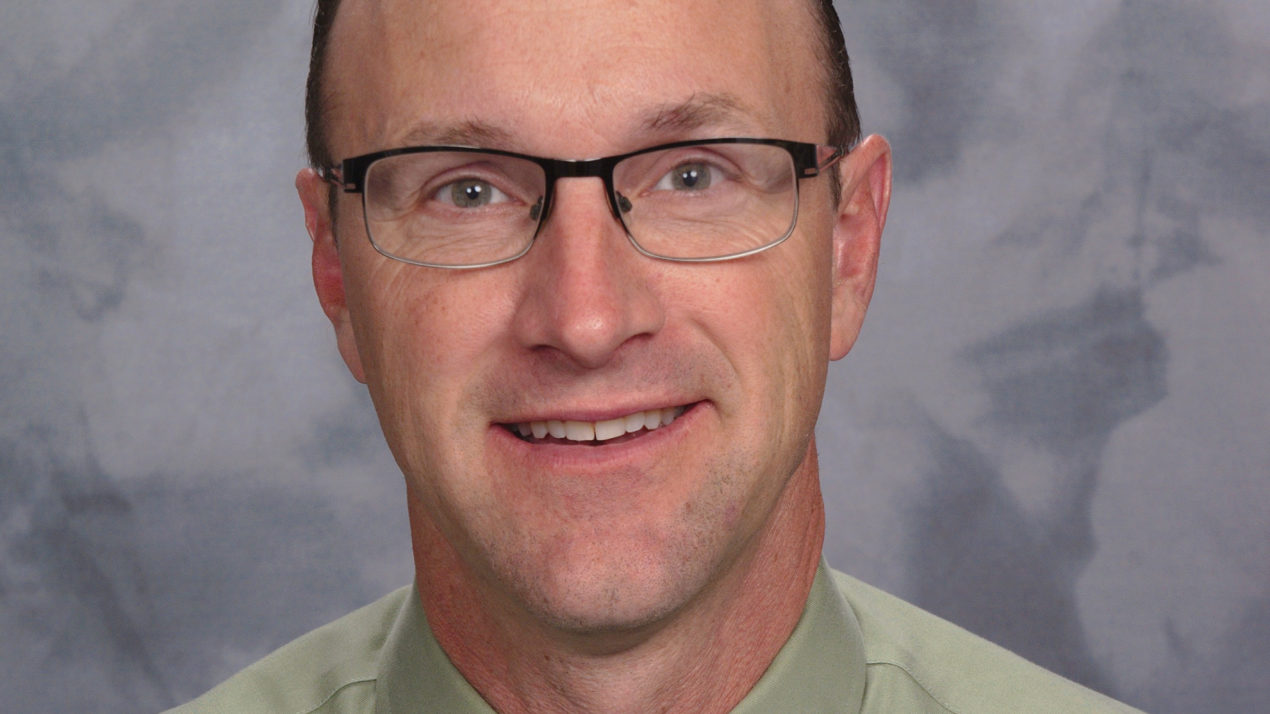
When Mitch Breunig received the Dairy Business Association’s Advocate of the Year, he said he was humbled.
And then he turned the attention elsewhere.
“I work with people who have received it in the past and I can’t help but to be inspired by them. They are tremendous people for the dairy industry and have given a lot back,” the Sauk City, Wis., dairy farmer said.
The award came as a surprise to Breunig when it was sprung on him a few days before DBA’s virtual conference, where the public announcement was made today.
“He is a man of great integrity and operates his personal and professional life in a way that makes his family and friends proud,” Matt Gabler of Vita Plus and Cornette Farm Supply, the sponsor of the award, said in introducing Breunig. “While he is a great dairy manager, his leadership reaches beyond the farm gates,” Gabler said. “He is willing to give his time to engage with the public, members of the media, researchers and colleagues in the dairy community. When it comes to the dairy industry, Breunig always does the right thing.”
Breunig’s family farm, Mystic Valley Dairy, has undertaken several expansions over the years, coming up from a 50-cow herd milked in a stanchion barn beginning in 1961 to a herd of 400 cows and 1,000 acres of cropland today. Throughout these changes, Breunig successfully kept sight of his most important goals for the farm: to create a sustainable business by breeding long-lasting cows that produce large volumes of milk and have exceptional quality.
“The next generation coming in and trying to run their businesses needs us to lead the way for them so they can get where they’re going,” Breunig said.
Tim Trotter, DBA’s executive director, applauded Breunig for his willingness to share his leadership with the entire dairy community.
“Mitch’s vision, passion and commitment to dairy is evident in everything he does,” Trotter said.
Breunig was instrumental in developing Wisconsin’s Dairy Innovation Hub, an agricultural research engine through three of the University of Wisconsin System colleges. He said the trend of fewer dairy-focused faculty members needed to be reversed.
“It’s really important we changed the way that was going,” he said. “We might not notice the research today, but in 20 years we will see the results.”
“This is a cool collaboration between all the dairy and ag groups around the state,” he said. “We all worked together on a project that was good for everyone.” Breunig, who regularly appears in news stories, said farmers should take this opportunity more often. “If the media has a question, be the one they call first.”
Personal connections are crucial as well, he said.
“It takes more than one conversation to change an opinion about the dairy industry. And it takes that conversation with one person at a time to help them understand our industry and how it’s changed over the years.”
Evers Emphasizes Support for Broadband and Conservation

Gov. Tony Evers pledged his support for the dairy community today, pointing to an investment in rural broadband and support for farmers who are advancing conservation practices.
Speaking to viewers at the Dairy Business Association’s virtual Dairy Strong conference, Evers highlighted his focus on improving what he called “unacceptable” internet service in rural Wisconsin. “High-speed internet is a necessity these days and we have to make sure it is reliable, affordable and accessible for everyone,” he said.
A report this year from the research firm Forward Analytics, which examined Federal Communications Commission data from 2019, found that 430,000 people, or 25 percent of Wisconsin’s rural population, don’t have high-speed internet. That puts Wisconsin 36th in the nation in terms of accessibility in rural areas.
Evers said he wants to quadruple state spending on the problem, including $150 million more for an existing broadband expansion grant program and $40 million to help low-income families.
Evers also said that his proposed budget, which he’ll be announcing over the next month, will draw from recommendations from the Governor’s Task Force on Climate Change, which outlined 55 solutions to protect the environment. Among those items is increased funding for farmer-led watershed conservation groups, which voluntarily expand the use of innovative farming practices that improve water quality and soil health and track progress using science. The groups receive grants and other support from the state’s agriculture department.
Evers said the state wants to continue partnering with and empowering farmers in those efforts.
“I’ve said all along that our farmers and producers are some of the most avid supporters we have as it relates to clean land, clean air and clean water because you know the value of our state’s natural resources firsthand,” he said.
Evers also praised the dairy community and others in agriculture for persevering during the pandemic, despite difficulties farmers were facing even before COVID-19 struck.
“Nevertheless, you worked hard and tirelessly to ensure Wisconsinites and Americans across our country had food on the table, all the while incorporating new health precautions into your operations,” he said. “That’s why you have been and will continue to be essential to our state.”
A prosperous dairy community, the governor said, “means a strong Wisconsin economy, strong communities and a strong future for our people and our state.”
WPA Announces Scholarship Winners
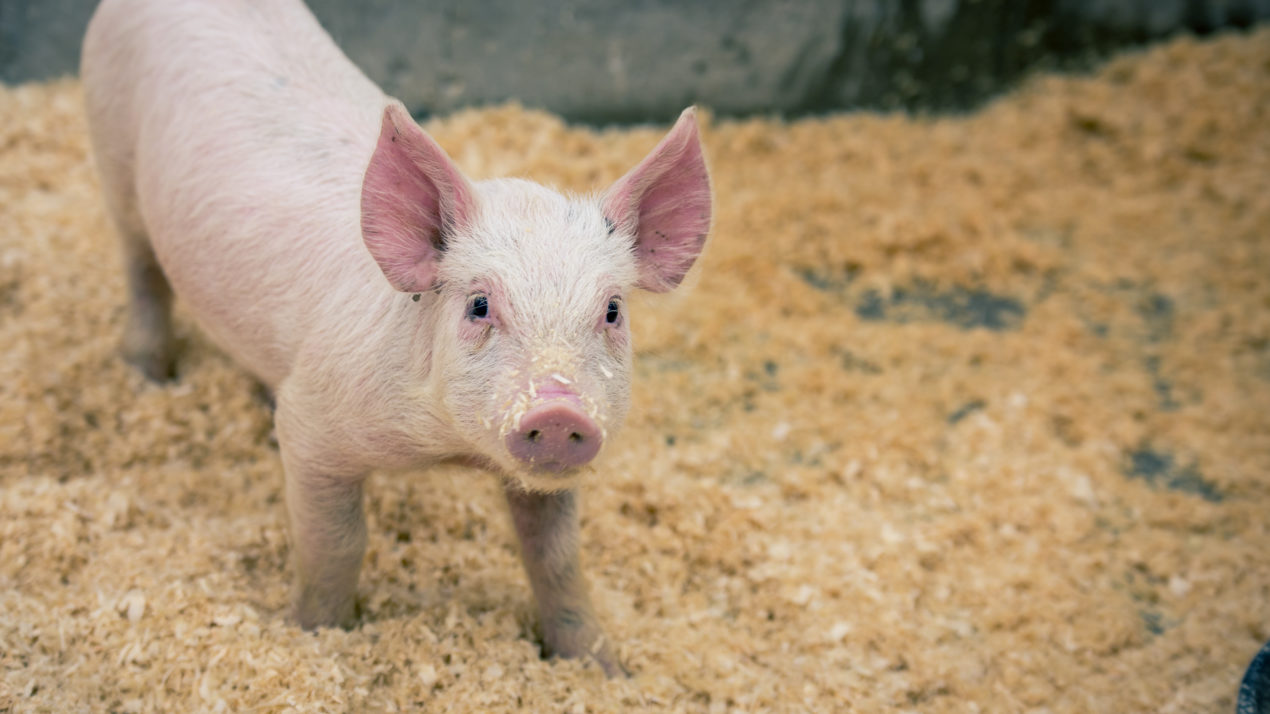
The Wisconsin Pork Association (WPA) would like to recognize the 2021 scholarship recipients. Eight high school seniors and college students were awarded a total of $6,900 in scholarships.
WPA Scholarship
This scholarship is presented each year to high school seniors pursuing further education with an interest in agriculture. This year, Abigail Helbach has been selected to receive a $500 and Victorria Meylor will receive a $400 scholarship. Abigail Helbach is a senior at Amherst High School. She plans on studying Animal Science and Agricultural Communications at Oklahoma State University. Victorria Meylor is a senior at Darlington High School. She plans to study Animal Science at the University of Wisconsin-Platteville.
Whitmore Memorial Scholarship
The Whitmore Memorial Scholarship was established as a legacy to the late Rex Whitmore, a master statesman and communicator who served as the first executive director of the Wisconsin Pork Association. Applicants for this scholarship must be a junior or senior at University of Wisconsin-Madison, University of Wisconsin -Platteville or University of Wisconsin -River Falls. Sarah Albers is the recipient of the $1,500 scholarship. Sarah is from Prairie du Sac and a junior studying Animal Science with a Meat Animal Emphasis at the University of Wisconsin-River Falls. Next Fall, she will be studying Veterinary Medicine at the University of Wisconsin – Madison where she will focus on food animal medicine.
Gunderson Memorial Scholarship
The Wisconsin Pork Association, in cooperation with the family of Buell Gunderson, established a scholarship program in 2007 to recognize the many contributions that Buell Gunderson made to the Wisconsin pork industry. Gunderson, together with his wife, Bernice, served as Secretary/Treasurer of the Wisconsin Pork Association for 20 plus years and assisted in growing the organization from its initial roots to the successful organization that it is today–sponsoring scholarships, developing youth programs and helping to support the pork producers of the state.
This year, Morgan Fitzsimmons has been selected to receive a $1,000 scholarship and Carson Lobdell will receive a $750 scholarship. Morgan Fitzsimmons, Mineral Point, is a senior attending Iowa State University and majoring in Agriculture Communications with a minor in Animal Science. Carson Lobdell, Darlington, is a freshman attending Lincoln Land Community College in Springfield, IL. where he is majoring in Agriculture Business.
WPA Fredrich Memorial Scholarship
The Fredrich Memorial Scholarship was established in 2018 through funding from the Southeast Wisconsin Pork Producers. This scholarship honors Clarence Fredrich and is offered to students in Walworth, Racine, and Kenosha counties.
This year’s recipients are Kelsey Henderson, Melissa Konkel, and Jack DeWees. Kelsey Henderson, Kenosha, will receive a $1,000 scholarship. Kelsey is a freshman at Iowa State University majoring in Agriculture Business. Melissa Konkel will also receive a $1,000 scholarship. Melissa, Elkhorn, is a freshman at the University of Wisconsin – Madison majoring in Dairy Science with a plan to double major in Animal Science. Jack DeWees, Franksville, will receive a $750 scholarship. Jack is currently a senior at Union Grove High School. After graduation, he plans to attend the University of Wisconsin – Platteville where he will major in Agriculture Education and minor in Zoology.
Maybe Messy at First, Manure Digesters Can Pay Off
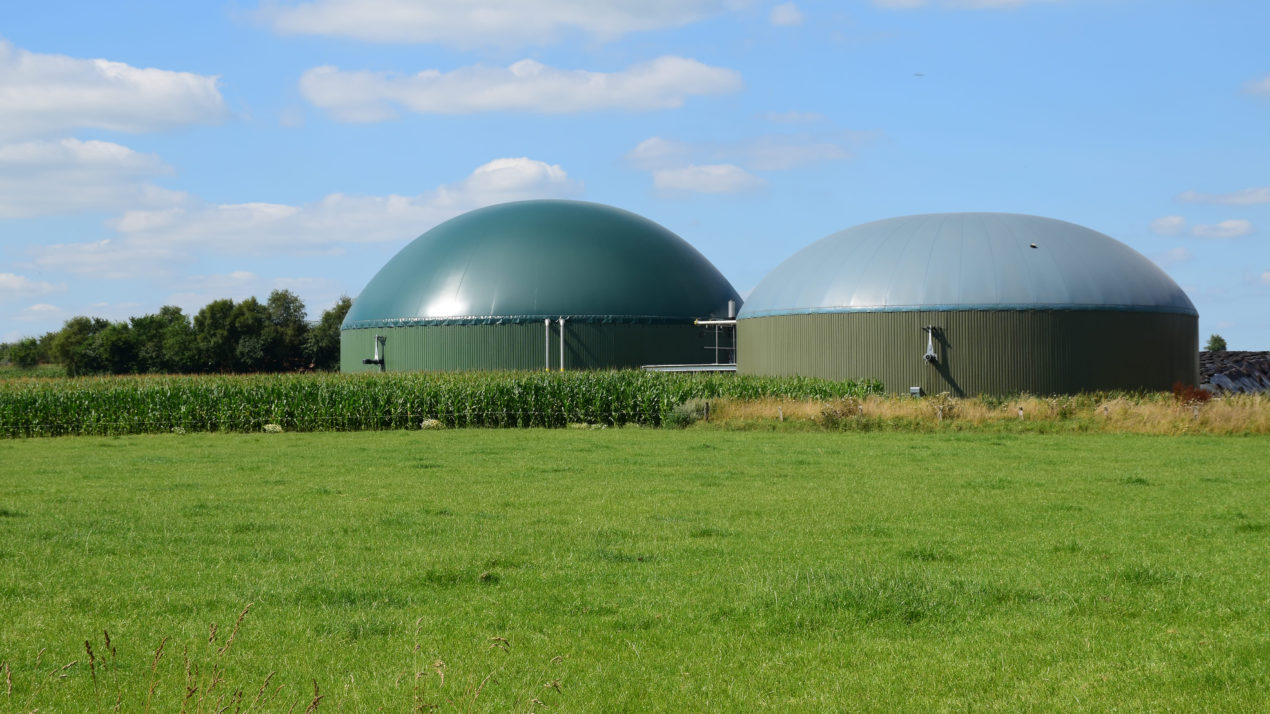
Dairy farmers are always searching for ways to diversify and add value to their businesses. Many are quickly seeing benefits of using manure as an alternative revenue source.
With 10 years of experience working with the compressed natural gas (CNG) industry, Brian Dolski, chief financial officer of Pagel Family Businesses in Kewaunee, Wis., has a broad perspective.
“Processing and selling manure is a massive market opportunity for the dairy industry,” Dolski said Jan. 20 during a panel discussion at the Dairy Business Association’s Dairy Strong conference, held virtually.
Much of the CNG market remains in California, Dolski said, but that shouldn’t stop farmers in Wisconsin from considering this opportunity.
“There is plenty of room in the industry to support projects from Wisconsin dairy farms,” he said. “There are a lot of moving parts and mouths to feed, but farmers could potentially receive $1,200 per cow per year after installing a digester.”
Processing manure in a digester is becoming more common around the Midwest. In its various forms, manure can be used on the farm or sold. While it has its unique challenges, it can serve as livestock bedding or be used for electricity and natural gas. In order to receive energy credits to sell, two pathways must be demonstrated after the gas is produced, Dolski said. A physical pathway consisting of an interstate pipeline to transport the gas is necessary. Farmers who live within 5 miles of a pipeline have a huge advantage because they don’t have to use pumps and trucks, he said. And, a contractual pathway must also be formed in order to establish the environmental attributes of the gas.
“Being cognizant about connecting the dots in the value chain is where the money is,” Dolski said.
Josh Meissner, co-owner of Norm-E-Lane Farm in Chili, Wis., added a digester to his operation in 2007 after quadrupling the size of the dairy herd seven years earlier. After taking tours, searching out state and federal grants and keeping an open mind, Meissner completed his installation project in 2008 and became the 15th farm to have an onsite digester in Wisconsin.
“Most of the onsite digesters in the state were creating electricity, so we set up the same type of agreement with Dairyland Power,” he said.
Keeping construction simple and maintaining a consistent product going into the digester are keys for success, Meissner said. Initially, his system was operating on dirty gas, which ruined the engine after just a few years. It has been updated, cleaned and a new engine installed.
“After doing the math of the digester install, we were at net zero,” he said. “Then we added in the value of the bedding that came from it and saw a benefit of $250,000 per year.”
Jessica Niekrasz, president of Clean Fuel Partners in Dane, Wis., said there are always grand plans in place for digester installations, but after a few years, they require maintenance as parts wear out. She said many farmers with digesters see benefits of using the excess heat and creating bedding.
“Even though manure is hard to work with and corrosive, if a digester system is stabilized and there is a regular maintenance schedule, it can reach a profitable status,” Niekrasz said.
The primary challenge for digester operators is finding a talented, trustworthy workforce, she said. These workers must be able to do the physical work of system maintenance but also need to be problem solvers.
Entering into an agreement involving a digester requires farmers and all other parties to assess how much risk they’re willing to take, including with the needed workforce, Jordan Hemaidan, a lawyer with Michael Best, said.
Agreements are created based on a farmer’s current setup as well as plans for the future,” Hemaidan said. Manure purchase agreements, leases and biogas agreements are all dependent upon risk level.
“From the farmer perspective, be very careful about who gets what risk,” he said. “Go into this with eyes wide open.”
Hemp stakeholder survey helps identify crop research priorities
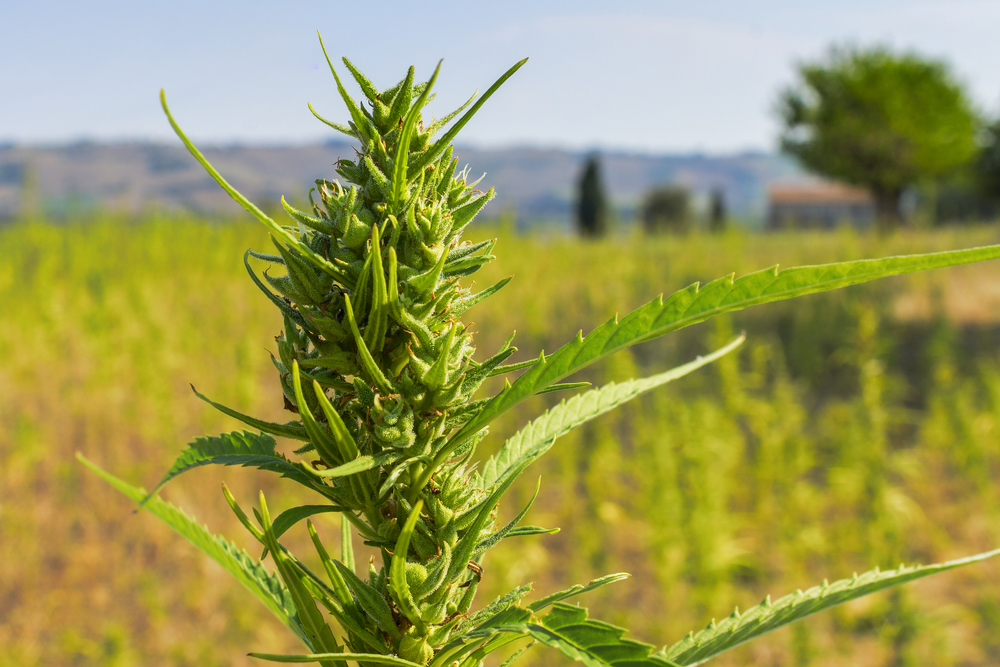
After a decades-long hiatus due to the crop’s legal status, growers are now producing industrial hemp across the United States. Despite significant developments in the U.S. hemp industry over the past few years, there remain substantial gaps in the knowledge needed to fully support this fledgling industry. To help identify some of these gaps, a nationwide survey of hemp stakeholders was conducted to determine priority areas for future research projects on hemp.
The survey, funded through the USDA NIFA Supplemental and Alternative Crops Competitive (SACC) grants program, was completed by over 1,100 hemp growers and other stakeholders across 23 states involved in developing a sustainable hemp industry. The overall goal was to identify hemp research and education priorities for the next several years.
Survey questions were developed by the planning committee for the inaugural National Hemp Research and Education Conference, which was funded through the same SACC grant, along with additional input from industry stakeholders. Survey responses, which focused on the 2019 growing season, were solicited during Dec. 2019 and Jan. 2020 and then analyzed by Shelby Ellison, assistant professor in the UW–Madison Department of Horticulture. The results were recently published in the journal GCB-Bioenergy at https://onlinelibrary.wiley.com/doi/10.1111/gcbb.12794.
While almost every research category was deemed important amongst the majority of stakeholders, several areas stood out as key priorities:
- The highest priority research need is in economics and marketing of hemp.
- Stakeholders also found regulatory and policy issues a major concern with need for directed research.
- Stakeholders want breeding and genetics research to produce stable and uniform cultivars and regional adaptability, and to improve flower quality and seed characteristics.
- Survey respondents also report a need for research to better understand agronomic practices and production systems of hemp, such as disease management and postharvest considerations.
- They also would like to see research projects related to human nutritional quality and health properties of hemp.
- There is a substantial need for better and more accessible education and outreach across many groups including producers, processors, regulators, consumers, and law makers.
The survey results show there are many current bottlenecks in the U.S. hemp industry. The information gained from the survey results will aid hemp researchers in defining their research priorities, and help funding entities identify priority research areas to target their grant programs. Many key research topics are complex and projects will require collaboration across numerous hemp industry sectors in order to assemble the collective knowledge and experience needed to address the questions and needs of this industry.
For more information about the report, contact Shelby Ellison at [email protected].
17th Annual Joan Ballweg Leadership Scholarship
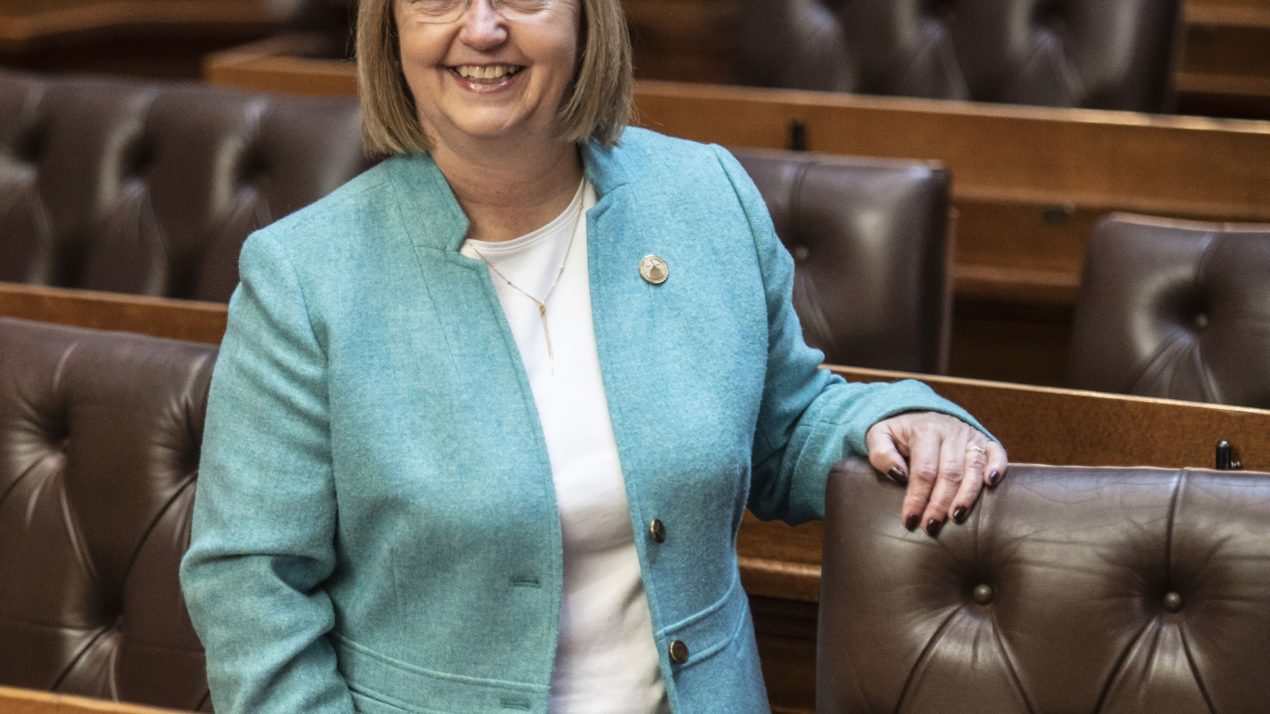
Each year, Senator Joan Ballweg (R-Markesan) offers scholarships to qualifying high school seniors in her district. This will be the first year she will offer scholarships as a state senator. Previously, as the state representative for the 41st Assembly District, she offered five $500 scholarships. This year she will be offering up to twelve $500 scholarships. Applications are being accepted now through Monday, April 5, 2021.
Scholarship eligibility is open to all graduating seniors continuing their education in a 2-year technical college program or a 4-year baccalaureate degree program. Students must be graduating with at least a 3.0 average on a 4.0 point scale and must reside in the district. If you are unsure whether or not you reside in the 14th Senate District, you can visit the legislature’s website at www.legis.wisconsin.gov. Then type in your address under “Find My Legislators” to determine your home district.
“I am always amazed by the students who apply for my scholarship. Each one is highly involved in their schools and communities. To date, I’ve awarded nearly 75 scholarships,” said Ballweg. “My hope is that these students take their work ethic and leadership skills into college and on to the workforce.”
Deadline for applications is Monday, April 5, 2021. Scholarship packets are available at area high school guidance offices; online at https://legis.wisconsin.gov/senate/14/ballweg; by contacting Senator Ballweg’s office for an application packet by calling (608) 266-0751, or e-mailing [email protected].
Focus on Energy Gears Up for a Great 2021

Despite the disruptions we all saw happen in our world last year, the good people at Focus on Energy continued to help farmers and those in agribusiness save money and energy in 2020. “We still saw a lot of action, we still saved a lot of energy, and saw a lot of applications come through,” says Jessica Mlsna, an Energy Adviser with Focus on Energy. One of the most popular options among Focus on Energy customers last year, Mlsna says, were the grain dryers.
With that being said, what are the exciting options in store for this year? “One big thing is horticultural lighting measures have now been added to the agribusiness catalog,” Mlsna explains. “They are now a fixture in the agribusiness catalog.” She continues by saying that the requirements for fans have been simplified and incentive rates have been modified, meaning they will now be based off the type of fan you’re after.
To hear the entire conversation between Mlsna and Jahnke, the first discussion of 2021, you can simply click the play button below:
Fair Food Festival Helps Those Craving Fair Food and Outdoor Family Events

If you’ve missed delicious fair food and sweet treats, the Dodge County Fairgrounds is offering a new series of events this year. Bring the whole family to Beaver Dam for the Fair Food Festival, which will feature delicious sweet treats, tasty fried fair food and an assortment of food carts. Events are scheduled rain or shine for April 24, May 8, June 5, July 17, September 4 and October 2. Attendees may arrive for lunch or dinner anytime between 11:00 am and 8:00 pm to enjoy fresh, hot fair food and refreshing treats.
Attendees will enjoy FREE admission and plenty of free parking. A variety of new vendors will be showcased each month. Picnic tables and shelters will be available for relaxing and listening to music outdoors while enjoying your favorite carnival foods. However, attendees should feel free to bring their own lawn chairs to enjoy a snow cone or refreshing lemonade under the many shade trees.
Foodies will enjoy the aroma of tasty treats from a variety of vendors, offering items like gourmet soft pretzels, freshly-popped kettle corn, shaved ice, delicious grilled cheese sandwiches and blooming onion petals.
Funds raised from these events will help support the non-profit Fair Association and the maintenance of the Dodge County Fairgrounds. But your business will also support many struggling, local food vendors, who have experienced hardships during the pandemic.
Other delicious options may include fresh-squeezed lemonade, warm, fresh donuts, loaded nachos, hot dogs and local beverage vendors. Food carts and vendors offering these items or who interested in offering similar items at the Fair Food Festival should reach out to Ms. Barb Mullin at [email protected] or 920-885-3586. Cash or check payment will be accepted prior to April 10th. Payment may be sent to: Dodge County Fair Association, P.O. Box 654, Beaver Dam, WI 53916.
Food vendors will enjoy high voltage direct electricity, water, restrooms and garbage receptacles and service with the $75 monthly reservation fee. Vendors may secure space at all six events for only $400.
In August, Wisconsinites should also plan to enjoy fresh, fair food at the Dodge County Fair. The 2021 Dodge County Fair will return to Beaver Dam on August 18-22, with a variety of carnival food, the midway and family-friendly entertainment in a safe and healthy outdoor atmosphere. Be sure to stay tuned via our newsletter, to receive updated information on fair plans, safety measures and FREE evening events and concerts.
2021 Organic Farmer of Year Announced
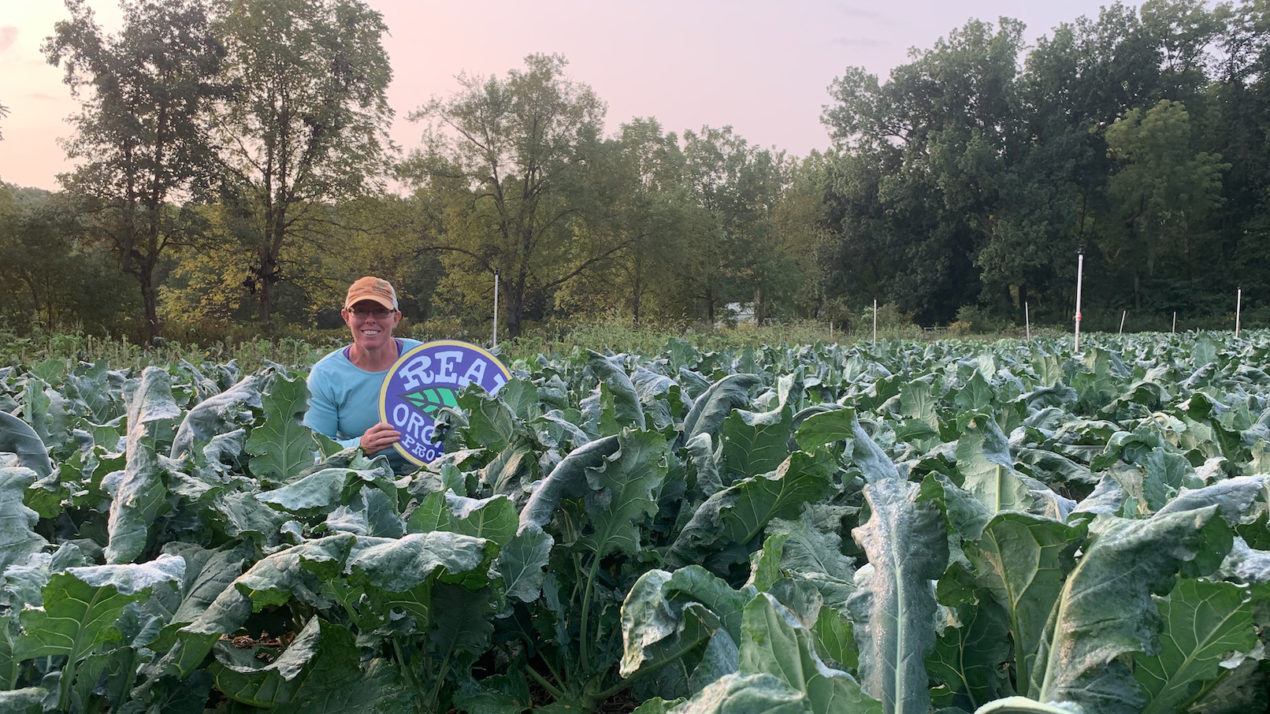
Liz Graznak runs Happy Hollow Farm, growing certified organic vegetables amid a sea of conventional row crops in rural Moniteau County, Missouri. Through Graznak’s hard work, vision, and magnetism, Happy Hollow is the gravitational center of good food and good community for rural neighbors, customers, and fellow farmers. In recognition of Graznak’s outstanding organic practices and her efforts to expand awareness of organic food and build community around it, she has been named the Organic Farmer of the Year by the board of the Midwest Organic & Sustainable Education Service (MOSES).
This prestigious award recognizes one Midwest farmer/farm family each year for innovative farming practices and the outreach they do to teach others how organic farming works. Graznak will receive the award Feb. 22 at the kick-off of the Growing Stronger Collaborative Conference on Organic and Sustainable Farming, a virtual event that combines the MOSES Organic Farming Conference, GrassWorks Grazing Conference, OGRAIN Organic Grain Conference, Midwest Organic Pork Conference, and Organic Vegetable Production Conference. For conference information, see bit.ly/GrowingStronger2021.
Happy Hollow Farm
Graznak launched Happy Hollow Farm in 2009 with 18 members in a Community-Supported Agriculture (CSA) model where consumers buy shares in the farm and receive a weekly box of produce. Today, she and her crew deliver 85 share boxes, provide two tents of produce as a cornerstone vendor at the Columbia Farmers Market, and supply produce to local restaurants and natural foods grocers.
The bedrock of Happy Hollow Farm is the CSA, though community-centered agriculture would be a better description. Unlike many subscription-style CSAs, Happy Hollow requires members to work two half-days a season. Far from a burden, the work requirement bonds the farm and its members, who cherish the workdays.
Jeanne and Mark Heuser have been members since 2010. They said they love the freshness, quality, and flavor of Happy Hollow produce. Jeanne’s connection to the farm has carried over into other work. She and Graznak are working together to lay the groundwork for a regional food system with the formation of the Moniteau County Neighborhood Alliance. The goal is to support community health and economic wellbeing through education and advocacy. Their first project with University Extension is to promote access to safe food and build the community of food growers in their region.
Jeremy and Amanda Root, who live in Columbia, raised their two daughters on Happy Hollow’s CSA boxes. They love the exposure to new varieties and the rhythm of seasonal eating. “It’s the relationship with the farm that is precious to us,” Jeremy said.
One thing that sets Happy Hollow apart from other vegetable farms is its year-round production cycle. While many farms have produce 32 weeks a year, this one provides produce 52 weeks a year. In the summer months, the farm provides the very best versions of peak-season veggies in a crowded marketplace. Winter sales of fresh greens out of the high tunnel offer a unique and valuable product that is in high demand.
“No one else has fresh, local, organic produce in December,” Graznak said, proud that her farm fills in the gaps.
Maintaining organic certification is important to her. The label indicates third-party accountability, and customers have confidence the farm is following organic rules. It opens up wholesale markets, and importantly, it forces Happy Hollow to do the paperwork that is so valuable for tracking how each crop is doing year to year.
Farm neighbors JT and Mary Cassil were skeptical at first that Graznak could “run a truck patch” on land that had been owned for more than a century by the Cassil family. Graznak’s hard work and fresh produce won their respect.
“She’s got a product that anybody would want. Her produce is beautiful,” JT said. “Liz takes care of the land. It means a lot to me.”
Every aspect of the farm presents an opportunity for Graznak to activate her vision. She wants to raise the best vegetables, using the best land practices, being the best boss and best possible neighbor she can be, all while building a community of organic eaters and producers in her region. Her work ethic has been instrumental to her fitting into this rural community that wasn’t used to seeing lesbian couples settling down to farm. Graznak’s wife, Katie, works in Columbia. They have two children, Sylvia, 7, and Ellowyn, 1.
Graznak has a passion for farming and the community she has stitched together. While she doesn’t downplay the difficulties of farming, she also sees the beauty that comes from building a community around good food and shared health. Her inner fire appears outwardly like joy in action. It leads her to erect high tunnels and teach classes, to deliver the best food to her CSA members in handmade cedar boxes, and to check in with her employees while they are harvesting lettuce. She lives out the reality that good agriculture requires community—one that is healthy, intertwined, and prosperous.
The Organic Farmer of the Year award is a project of MOSES, a nonprofit organization that encourages organic and sustainable agriculture by providing farmers with education, resources, and practical advice. For more information, see mosesorganic.org.
WAFER Mobile Food Pantry vandalized, organization frustrated with consistent vehicle tampering

